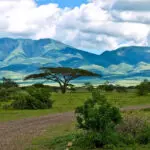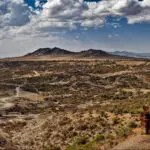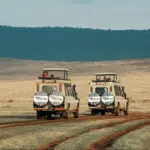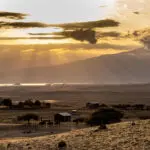Arabica coffee is amongst the main crops cultivated on the southern slopes of Mount Kilimanjaro. Here, the volcanic soils are moist and rich in nutrients, a result of reliable rains blown in from the Indian Ocean and the proliferation of springs from the bare rock. Banana trees provide shade and a nutrient-rich mulch for the coffee to grow.
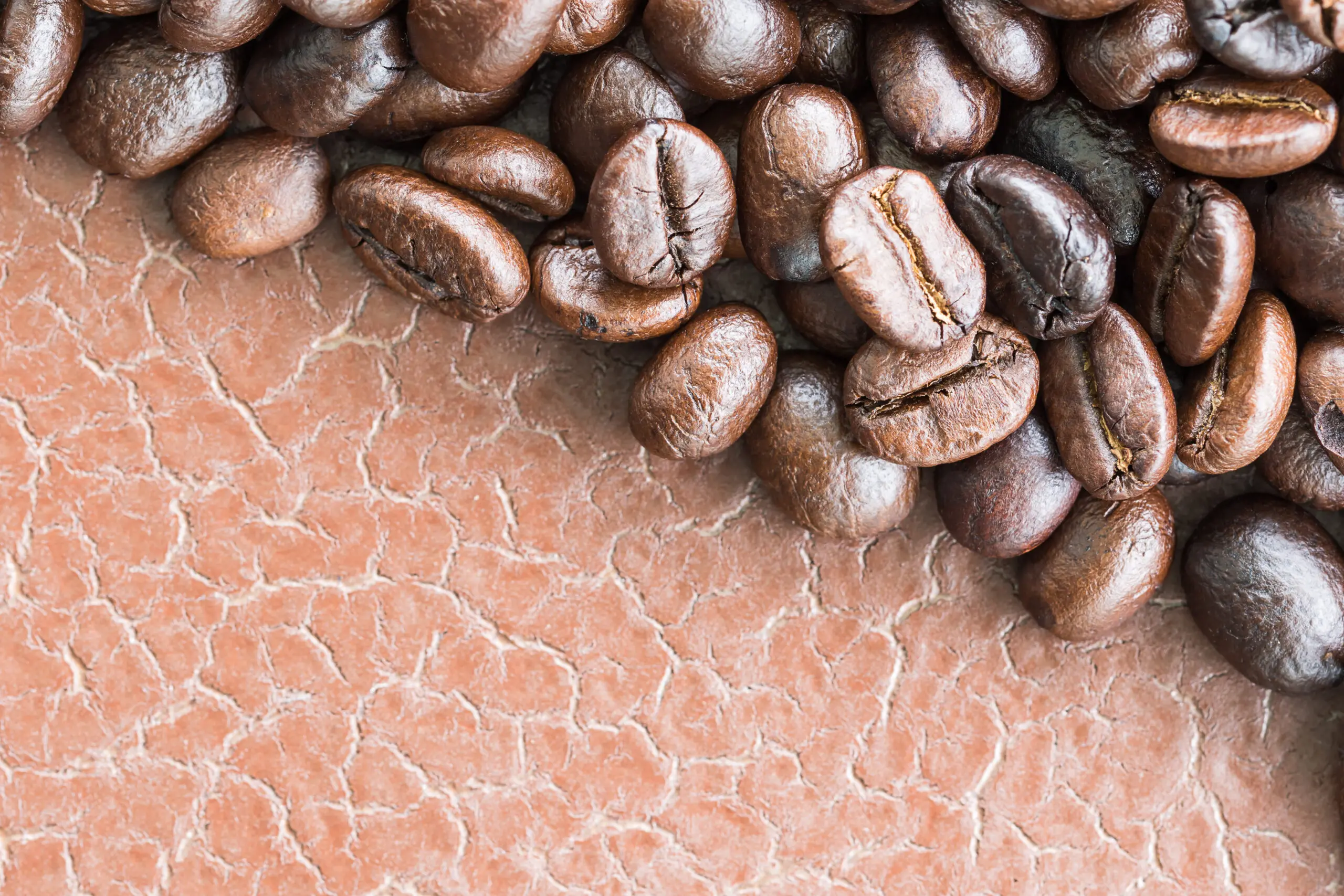
Your Kilimanjaro Tour
On this day trip, you will drive up the slopes of Kilimanjaro to a local family farm. Here you will participate in the full coffee-making process, learning Chagga tribe traditions and tales as you husk, roast, grind, and boil your own cup of fresh, single-origin Kilimanjaro coffee. If you visit during harvest time you will also have a chance to try your hand at picking ripe coffee cherries.
Following the coffee-making, you will take a short 30-45 minute hike down to the base of a beautiful waterfall, Materuni, where you can bask in the cool mist and even take a dip if you’re feeling brave; the water is crisp and quite cold!
A Short History of Coffee in Tanzania
Coffee was introduced in the early 20th century by European settlers, primarily missionaries, who first settled in the Kilimanjaro region. The mountain’s southern slopes are home to the Chagga people, one of Tanzania’s 120 tribes and the largest ethnic group. The Chagga is an industrious tribe that has thrived in agriculture due to the fertile land, early introduction to education, a result of missionary settlements, and, more recently, the robust tourism industry brought by the mountain.
Coffee on the mountain tends to be organic by default since the small size of the coffee farms does not allow for investment in pesticides. The hilly land also makes it hard to use machinery, so a lot of the coffee is tended by hand. The children inherit Chagga lands, and they keep them in their possession, as selling land is taboo. This parceling of land among families over time has resulted in diminished landholdings with every generation, with many farms now less than a hectare (~2.5 acres) in size.
Coffee isn’t just a crop for the Chagga people; it’s part of their heritage. For generations, families on the slopes of Kilimanjaro have grown Arabica beans under the shade of banana trees, often on small family plots passed down through the years. Coffee ceremonies, shared among relatives and neighbours, play an important role in social gatherings.
Sustainability and Community Impact
Choosing a local coffee tour is a way to support responsible tourism. The experience benefits smallholder farmers directly, helping them earn a fair income from both their crops and cultural knowledge. Many of these initiatives reinvest in the community: funding local schools, improving infrastructure, or preserving indigenous farming practices. For visitors, it’s a chance to connect meaningfully with locals, knowing that their presence helps protect both livelihoods and landscapes.
Now, start planning your own adventure in Tanzania! Explore our Kilimanjaro Trekking Tours for inspiration and get in touch with any questions.
